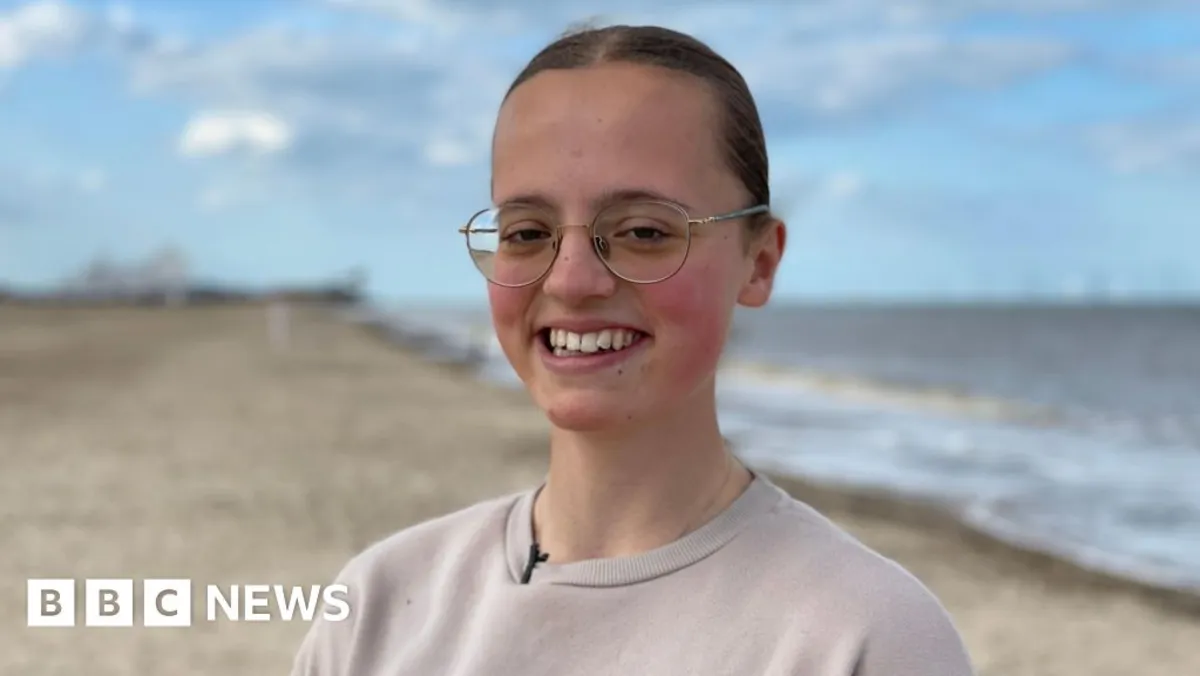
A remarkable breakthrough has occurred in the realm of medical science, as a teenager from Norfolk, Mary Catchpole, has become the first patient in Europe to receive a newly licensed treatment that holds the potential to cure her life-threatening inherited disorder. At just 19 years old, Mary has faced the devastating impact of Activated PI3-kinase Delta Syndrome (APDS), a rare condition that severely affects the immune system and diminishes the body’s ability to combat infections.
Mary's journey has been filled with heartache, as she lost her mother, grandmother, and several other relatives to this rare genetic disorder. “This treatment has brought me hope and joy,” Mary shared with BBC News. “I feel like I can do anything, but it is bittersweet because my family members passed away before they could benefit.” The newly licensed drug, leniolisib, represents the first targeted treatment for APDS, offering a glimmer of hope for those affected by this debilitating condition.
Mary is not only the first patient to benefit from leniolisib, but her family also played a pivotal role in the research that led to the identification of this ultra-rare condition. APDS was first identified in 2013 by researchers at the University of Cambridge and clinicians at Addenbrooke's Hospital, who discovered a faulty gene carried by several members of Mary’s family. Dr. Anita Chandra, a consultant immunologist at Addenbrooke's Hospital and an Affiliated Assistant Professor at the University of Cambridge, stated, “It is incredible to go from the discovery of a new disease in Cambridge to a treatment being approved and offered on the NHS, within the space of 12 years.”
Mary's father, Jimmy Catchpole, emphasized the family's commitment to research, stating, “We just wanted to help, not just for our own sakes, but we’d heard there were other rare cases. My wife volunteered for trials, and when Mary got old enough, she did too.” Tragically, Mary’s mother, Sarah, passed away at the young age of 43, along with other family members who succumbed to the same condition. While one of Mary’s cousins was successfully treated as a child with a bone marrow transplant, those procedures carry significant risks.
Reflecting on her past, Mary, who was only 12 when she lost her mother, expressed, “It was always a fear that I would die young too, but with this medication, I know I can have a longer life, which is what she wanted.”
APDS is characterized by an enzyme in the body that remains constantly activated, disrupting the development of white blood cells and leading to a disregulated immune system. Patients with APDS are particularly vulnerable to recurrent lung infections, which can result in irreversible damage. The condition can also lead to the swelling of organs and lymph nodes, as well as the immune system attacking healthy tissue, increasing the risk of developing lymphoma—a type of cancer affecting white blood cells.
The drug, branded as Joenja, is administered twice daily in tablet form and functions by inhibiting the enzyme, allowing the immune system to return to normal. Jimmy remarked, “This is something I have dreamt about since Mary was first diagnosed; it is giving her the chance to live a normal life.” Having endured numerous chest infections as a child and extensive treatments with intravenous antibiotics, nebulizers, and immunoglobulin replacement therapy, Mary has already begun her journey with leniolisib. Within less than a month of starting the medication, she has been able to discontinue some other treatments.
Dr. Chandra, who has treated several members of Mary’s family, described leniolisib as a potential cure. “I want to go on more adventures and take risks because all I've ever known is medication, needles, and hospital appointments,” Mary stated. “Now I can find out who I truly am.” With the faulty gene being passed down the maternal line, there is a 50:50 chance it could be inherited by affected women’s children.
Mary has aspirations of becoming a dance teacher, while also continuing her work as a teaching assistant. She expressed newfound confidence, stating that she is no longer fearful of infection, which has previously made her cautious around others.
Professor Sergey Nejentsev from the University of Cambridge, who led the research that discovered APDS, noted, “As soon as we understood the cause of APDS, we immediately realized that certain drugs could be used to inhibit the enzyme that is activated in these patients. Leniolisib does precisely that. I am delighted that we finally have a treatment which will change the lives of APDS patients.”
Although leniolisib has a list price of £352,000 per year, it was approved as cost-effective by the health regulator NICE after the NHS negotiated a substantial, confidential discount. NICE estimates that this groundbreaking drug could benefit up to 50 patients over the age of 12 in England. Professor James Palmer, NHS England's Medical Director for Specialized Commissioning, remarked, “This treatment could be life-changing for those affected by this debilitating genetic disorder, and this important step forward is another example of the NHS’s commitment to offering access to innovative medicines for those living with rare conditions.”